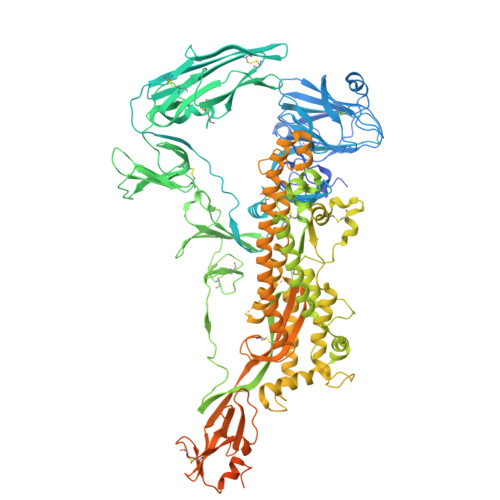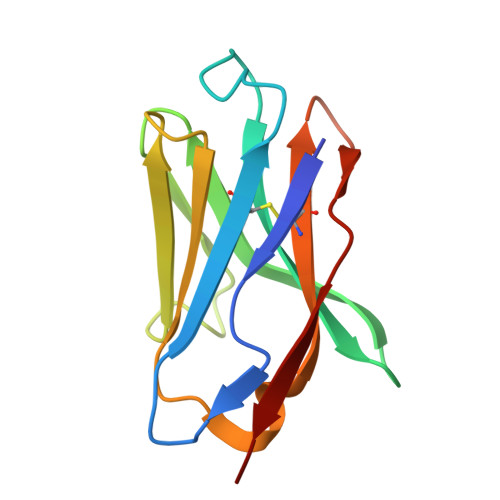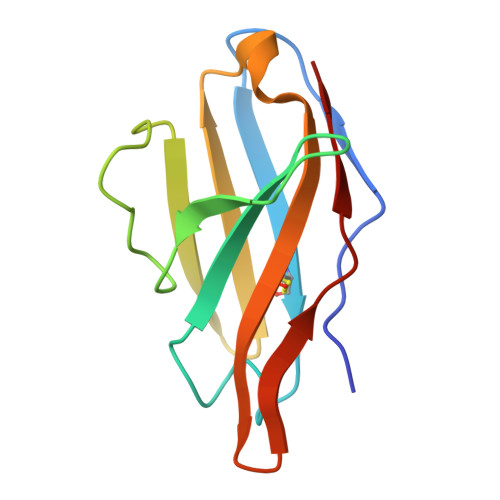Isolation and escape mapping of broadly neutralizing antibodies against emerging delta-coronaviruses.
Rexhepaj, M., Asarnow, D., Perruzza, L., Park, Y.J., Guarino, B., Mccallum, M., Culap, K., Saliba, C., Leoni, G., Balmelli, A., Yoshiyama, C.N., Dickinson, M.S., Quispe, J., Brown, J.T., Tortorici, M.A., Sprouse, K.R., Taylor, A.L., Corti, D., Starr, T.N., Benigni, F., Veesler, D.(2024) Immunity
- PubMed: 39488210
- DOI: https://doi.org/10.1016/j.immuni.2024.10.001
- Primary Citation of Related Structures:
9B2C, 9DEZ, 9DF0 - PubMed Abstract:
Porcine delta-coronavirus (PDCoV) spillovers were recently detected in febrile children, underscoring the recurrent zoonoses of divergent CoVs. To date, no vaccines or specific therapeutics are approved for use in humans against PDCoV. To prepare for possible future PDCoV epidemics, we isolated PDCoV spike (S)-directed monoclonal antibodies (mAbs) from humanized mice and found that two, designated PD33 and PD41, broadly neutralized a panel of PDCoV variants. Cryoelectron microscopy (cryo-EM) structures of PD33 and PD41 in complex with the S receptor-binding domain (RBD) and ectodomain trimer revealed the epitopes recognized by these mAbs, rationalizing their broad inhibitory activity. We show that both mAbs competitively interfere with host aminopeptidase N binding to neutralize PDCoV and used deep-mutational scanning epitope mapping to associate RBD antigenic sites with mAb-mediated neutralization potency. Our results indicate a PD33-PD41 mAb cocktail may heighten the barrier to escape. PD33 and PD41 are candidates for clinical advancement against future PDCoV outbreaks.
Organizational Affiliation:
Department of Biochemistry, University of Washington, Seattle, WA, USA.




















